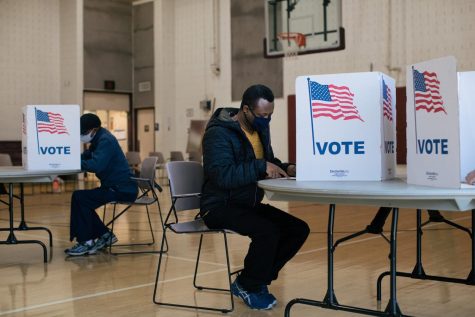Solving the banking problems for California’s marijuana industry
January 6, 2018
State Treasurer’s Cannabis Banking Working Group provides possible solutions
Cannabis is classified as a Schedule 1 drug, defined by the United States Drug Enforcement Agency as having “no currently accepted medical use and a high potential for abuse.” This classification subjects cannabis to the same federal regulations as other drugs listed in this category including ecstasy, LSD and heroin.
However, state laws view cannabis in different ways. This is creating problems since states are beginning to legalize it, and cannabis companies are generating significant revenue.
In the first few years after legalization, recreational cannabis is estimated to bring California $1 million in tax revenue according to the Legislative Analyst Office. Arcview Market Research estimates that it will bring in more than $7 billion in sales the first few years. These facts were listed in a study, “Banking Access Strategies for Cannabis-Related Businesses,” released by the the State Treasurer’s Cannabis Banking Working Group (CBWG) on Nov. 7.
An observation from this study identifies how cannabis companies are dealing with cash that ranges into the millions of dollars. However, conflicts between state and federal laws make it difficult for these companies to put their money away in banks.
Even though California voted to legalize recreational cannabis in November 2016, it remains illegal under federal law. This puts banks in a position to be penalized or shut down if they choose to do business with cannabis companies. This leaves cannabis companies with no place to put their money safely. It puts the industry at risk for crimes and other inconveniences, like the inability to write checks or transfer money.
“One of the main struggles is buying from suppliers that’s not in the same city or town and trying to get money into the bank to pay them,” the owner of a Northern California cannabis vape cart company, who asked to be anonymous, told The Pioneer. “Second frustration is proving to realtors or landlords that we have the financials to make it happen for them. Proving credit, things like that. That’s one of the biggest frustrations. Showing any bank statements with having cash flow so that they will let us rent their location. That’s another big headache that we go through.”
The CBWG study explains that federal laws keep banks away from the cannabis industry. These laws include the Bank Secrecy Act, the USA PATRIOT Act and the Racketeer Influenced and Corrupt Organizations (RICO) Act. These laws subject banks to penalties including closure and financial loss.
The CBWG study also notes that there are legal ways for cannabis and banks to work together. The U.S. Justice and Treasury Department of the Obama administration provided two guidelines: the Justice Department’s Cole Memorandum and FinCEN Guidance. However they don’t guarantee that the banks won’t be prosecuted by federal law. The red tape and lack of security make banks less willing to work with cannabis companies. More often than not they avoid the risk altogether.
Sporadic access to proper banking also keeps cannabis as an underground operation. California Treasurer John Chiang believes that this goes against the decision of the California voters. In response to this conflict, Chiang created the CBWG, a group of 18 different stakeholders in the cannabis industry.
“Since we have the inherent conflict between state law and federal law,” Tim Schaefer, deputy treasurer told The Pioneer. “The objective here initially was to try and get as many folks who would impact state law with folks that would impact, in some way, federal law.”
The study by the CBWG hopes to provide and educate the public with possible solutions to the issues between cannabis and banking. They have recommended four actions for the cannabis industry, government agencies and banks for the 2018 transition to legalized recreational cannabis.
These recommended actions include finding safer ways for handling cash, creating a compliance and regulation database for businesses and banks, getting government representatives and cannabis industry stakeholders to help advocate for change in federal law regarding cannabis and banking and to provide a study for state-backed public banks.
The Friends of the Public Bank of Oakland, an East Bay organization, advocate for a feasibility study of a public bank to be done. They also educate the public on the benefits of a public bank for the community. A public bank would provide the cannabis industry with stable banking and relieve some of their frustrations.
“We showed up to a lot of community events and state presentations,” Mary Schnidler, a volunteer for The Friends of the Public Bank of Oakland told The Pioneer. “We continued to speak up at city council meetings and tried to get our city council member Rebecca Kaplan to sponsor legislation to show support. That was the first step. The second step was to get money allocated to do this feasibility study.”
In September, the City of Oakland provided $75,000 to go towards study of a public bank. According to the meeting minutes from a Sept. 21 meeting, the Oakland Cannabis Regulatory Commision is trying to get other cities and cannabis business will contribute towards the study as well.
Advocacy for changes at the state level are important but the CBWG’s end goal is to help to change federal law. The California cannabis industry is working to alleviate the stress that banking brings the cannabis industry in order to make the industry legitimate, legal and safe for the industry, government agencies and the people of the community.






















